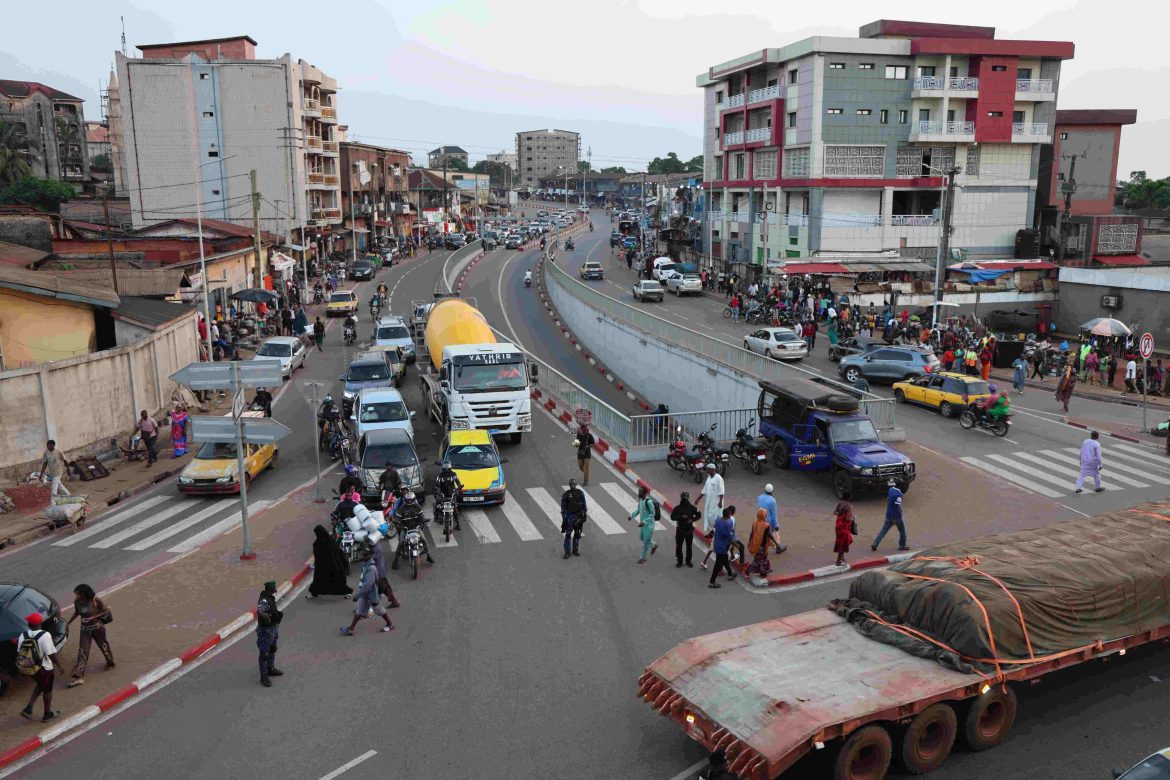Conakry, Guinea – November 17, 2025
In a new testament to the strong and longstanding cooperation between the State of Kuwait and the Republic of Guinea, the capital Conakry today witnessed the official inauguration of the Bambeto Interchange Project, implemented with financing from the Kuwait Fund for Arab Economic Development (KFAED). The ceremony was held under the patronage and in the presence of His Excellency Mamadi Doumbouya, President of the Republic of Guinea, reflecting the depth of the development partnership between the two nations.
The inauguration was attended by Mr. Rashed Al-Bader, Acting Deputy Director-General of the Kuwait Fund, alongside senior officials and representatives of partner entities.
During the ceremony, Guinea’s Minister of Planning and Cooperation, H.E. Ismaël Nabé, praised the pivotal role played by the State of Kuwait—through the Kuwait Fund—in supporting Guinea’s development journey. He emphasized that Kuwait has long been a key partner in advancing projects across infrastructure, agriculture, education, environment, and food security. He added that Kuwait’s support reflects the strength of bilateral relations and the Kuwaiti leadership’s commitment to helping enhance living standards and drive economic and social progress in Guinea.
For his part, Mr. Al-Bader affirmed that the opening of the Bambeto Interchange marks a new milestone in the solid development cooperation between Kuwait and Guinea. He noted the Kuwait Fund’s commitment to financing impactful, high-quality projects that deliver tangible benefits to communities and support partner countries in achieving sustainable development goals. The project, he explained, is an integral component of Conakry’s Urban Development Master Plan for 2040.
Al-Bader highlighted that Kuwaiti-Guinean development cooperation is deeply rooted, dating back to 1976 when the Kuwait Fund extended its first concessional loan—valued at USD 8.5 million—to support a telecommunications project. Since then, the partnership has expanded significantly through numerous joint initiatives and development programs.
He further noted that the Bambeto Interchange will greatly improve daily mobility and strengthen connectivity between key areas of the capital, reducing travel times for residents and commercial transport. The project includes the construction of an overpass, two roundabouts, and two tunnels, in addition to rehabilitating the road linking the interchange to the northern and southern corniche routes and expanding access toward the airport—opening new horizons for commercial growth and urban development.
Al-Bader concluded by reaffirming Kuwait’s steadfast commitment to supporting African partner nations, emphasizing that KFAED will continue to play a leading role in building meaningful development bridges that foster prosperity and well-being for friendly countries.
To date, the Kuwait Fund has provided 15 loans to the Republic of Guinea totaling approximately 67.424 million Kuwaiti Dinars, financing projects in the sectors of transportation, water, energy, health, and education. This is in addition to four technical assistance grants amounting to 708,000 Kuwaiti Dinars, and a 1.165-million-Kuwaiti-Dinar grant from the State of Kuwait through the Al-Hayat Al-Karima Fund, supporting efforts to improve living conditions and strengthen social development across the country.
About the Kuwait Fund for Arab Economic Development
The Kuwait Fund For Arab Economic Development is the first institution in the Middle East that took an active role in the international development efforts.
The Kuwait Fund extends Loans on concessionary term to finance development projects in the developing countries. The Fund also provides technical assistance to finance the costs of the feasibility studies of projects, as well as the training of nationals of the borrowing countries. In addition, the Fund subscribes in the capital of international and regional development institutions. Today, the Kuwait Fund forms a solid bridge of friendship and solidarity between the state of Kuwait and the developing nations.
For more information:

